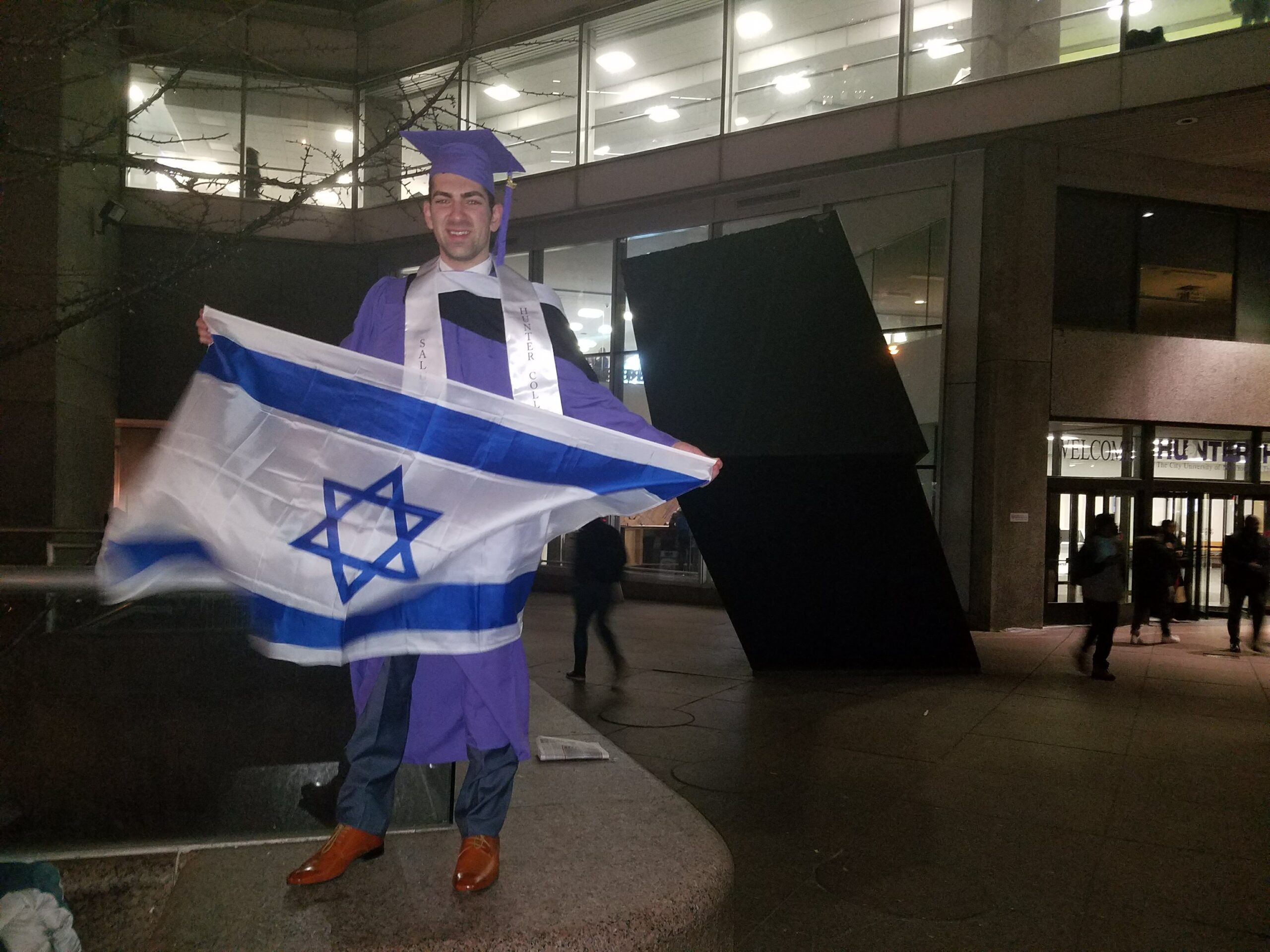Every Israel Independence Day in my yeshiva, every Kindergarten class would decorate themselves as a different part of Israel. My class was an El-Al flight. We took off and landed without being airborne. Throughout my childhood, Israel was celebrated, visited, and regarded as a place of the utmost holiness. Growing up during the second intifada, there were “bad people” who were against the Jews, but they were insignificant in my childhood eyes. I was taught Israel could do no wrong. Israel was Jewish, I was Jewish. We were one and the same.
Fast forward to Hunter College, at a protest against tuition hikes, pro-Palestian students chanted, “Zionists out of CUNY!” “Jews Out of CUNY!” and “Death to Jews.” I wasn’t into extracurriculars until I saw and heard these chants. It was my duty to act. My family fled religious persecution, and I wouldn’t let it recur. But I faced a major issue.
The Palestinian narratives and stories were something I knew almost nothing about. After seeing what I saw that night, fearing for my safety, I went home and ferociously read about everything I wasn’t taught in Yeshiva, The Nakba, Sabra Shatilla, Bus 300, and more. Until this point, Israel was this omnibenevolent force without nuance. I learned that wasn’t the case.
After that sleepless night, in my advocacy efforts, I began by asking the wise and experienced. At first, I aimed at justifying the points I grew up hearing all my life. Namely, right-wing talking points. My grandfather grew up in hostile Syria, predating Israel’s independence. Given his experiences of Israel’s birth and existential struggles behind enemy lines, I took his words to heart. He exclaimed, “Palestinians are just as human as you; they have a claim and cause. Open your eyes! At least consider what they have to say with an open mind.” So I did. I engaged with Palestinian students, presenters, and professors with an open mind, recognizing their struggles as human beings because of the fault of few. I began to realize centrism and moderation was the reasonable ideal to live by, not at the extremes. And how was that achieved? By exposure to the other side with a willingness to change.
Proudly, I organized and led two interfaith trips for my campus students to experience Israel firsthand. As a lifelong observant Jew, I’ve been to Israel many times. Never have I been to an area that wasn’t Israeli-governed. I’ve also never been there ready to question elements of Israel that I didn’t even know so many questions.
On this trip, I heard perspectives I’d never been exposed to – from Bedouins and Palestinians to women performing traditionally male Jewish rituals. Though at times unsettling, I visited mosques and churches, challenging viewpoints like those of Palestinian Authority officials and settlers. I aimed to burst my bubble, taking in different lenses to find the reasoned middle ground. I came home with invaluable new knowledge and an expanded worldview.
“Aren’t you in college to learn?” my grandfather asked, concerned my activism had become all-consuming. I entered college staunchly and blindly defending Greater Israel. Yet I graduated understanding the need for two states, opposing settlement expansion, and seeing Palestinians as mostly normal people stuck in bad conditions. My views migrated from the extremes toward the reasoned middle.
In almost all situations in life, news, business, and even gossip, the answer lies somewhere in the middle. Not this week, not in the attacks that transpired by Hamas this week. Murdering innocent civilians, harmless infants, children, tourists, and partygoers, raping parents in front of their kids, and kidnapping the elderly and disabled; these inhumane acts have no justification, no matter the perspective. The impact of the traumatic attacks is heavy here in America. My wife came home from her day sobbing. Her fourth-grade students panicked, fearful that Hamas would come to kill them next in Brooklyn, NY. No middle ground can justify Hamas’s actions.
I came a long way from my closed-minded, insular beliefs and education. But. Like those chanting for my death and expulsion on campus, these acts have no middle ground. Terrorists terrorized, full stop—a rarity where centrism is not the accurate and valuable path forward in the course of human events. My current thinking goes something like moderation and centrism should always be pursued, but there are limits. Terror is terror, and there are no complexities in that.
